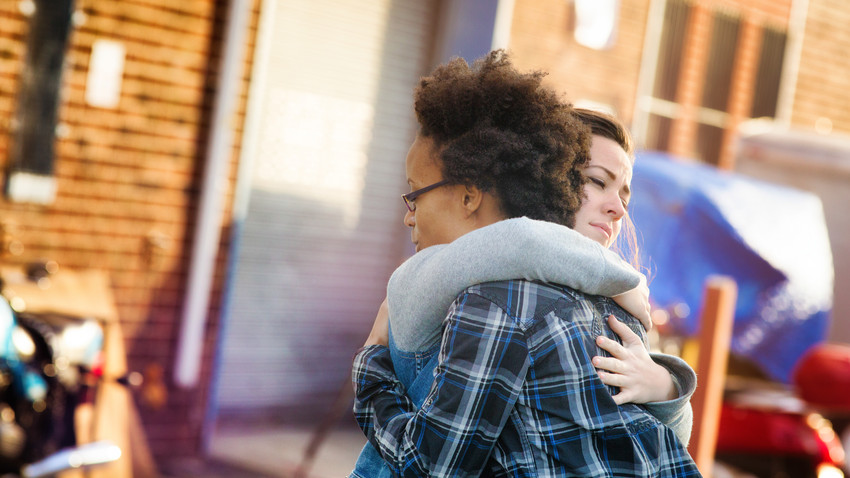
How to Heal the Pain When You Can't Feel the Pain
How can you heal someone’s pain, when you can’t feel someone’s pain? There is pain deep within our faith community and our university campus. And the truth is most of us can’t feel it. How could we possibly feel it? We’re white.
Years ago a friend gave me a book that I never got around to reading. Until a few days ago. It’s Paul Kivel’s exploration, Upending Racism: How White People Can Work for Racial Justice. One glance at the title and I knew that this wouldn’t be for me—since I’m not a racist, since I see little if any racism around me, so why should I worry? That was over twenty year ago. Now the book speaks volumes:
It is not necessarily a privilege to be white, but it certainly has its benefits. . . . Privileges are economic “extras” that those of us who are middle class and wealthy gain at the expense of poor and working class people of all races. Benefits, on the other hand, are the advantages that all white people gain at the expense of people of color regardless of economic position. . . . [J]ust because we don’t have the economic privileges of those with more money doesn’t mean we haven’t enjoyed some of the benefits of being white. (28)
Kivel runs through a checklist of such privileges: we’re able to count on police protection rather than harassment; we’re able to choose where we want to live with safe neighborhoods and decent schools; we’re “given more attention, respect and status in conversations than people of color”; in news, music, history books and the media “we see people who look like us” in a positive light; we have more access, credibility and recourse with lawyers and courts; “nothing that we do is qualified, limited, discredited or acclaimed simply because of our racial background,” et al (28-29).
And white privilege begins in childhood: people around us will have higher expectations for us as children; more money will be spent on our schools; we’ll get called on more times in class; we will see people who look like us in our textbooks; “and if we get into trouble adults will expect us to be able to change and improve, and therefore will discipline or penalize us less or differently than children of color” (29).
Kivel concludes: “All else being equal, it pays to be white. We will be accepted, acknowledged and given the benefit of the doubt. Since all else is not equal we each receive different benefits or different levels of the same benefits from being white” (29).
How can you possibly heal someone’s pain, when you can’t feel someone’s pain?
Ask the Good Samaritan. The crime victim was a Jew, and Jews hated Samaritans—so why should the Samaritan bother at all? He couldn’t feel the victim’s pain. But as Martin Luther King, Jr. observed about Jesus’ parable: Whereas the priest and the Levite fretted, “If I stop to help this man, what will happen to me?”, the Samaritan asked, “If I do not stop to help this man, what will happen to him?” (Let the Trumpet Sound: The Life of Martin Luther King, Jr. 140).
What will happen to her, what will happen to him if I don’t stop and pour myself in their pain? It’s the Golden Rule hammered out in the crucible of another person’s pain. The Samaritan knelt beside the victim and administered (ministered) to him the emotional and physical intervention the brutalized man desperately needed. And in his self-sacrificial love for his “neighbor,” we see not only the truth about Christ who knelt beside us, but the truth Christ calls His radical followers to embrace: As you would have others treat you, you treat them.
There is a pain deep within our faith community and our university campus. It may not be your pain—but until it becomes your business, the pain—plain and simple—cannot and will not be healed. In the school. In the church. In our own hearts.
Update: Since this blog was posted, the University has released the following videos as part of the ongoing dialogue on this campus - Official University Response | President's Remarks During Thursday Chapel